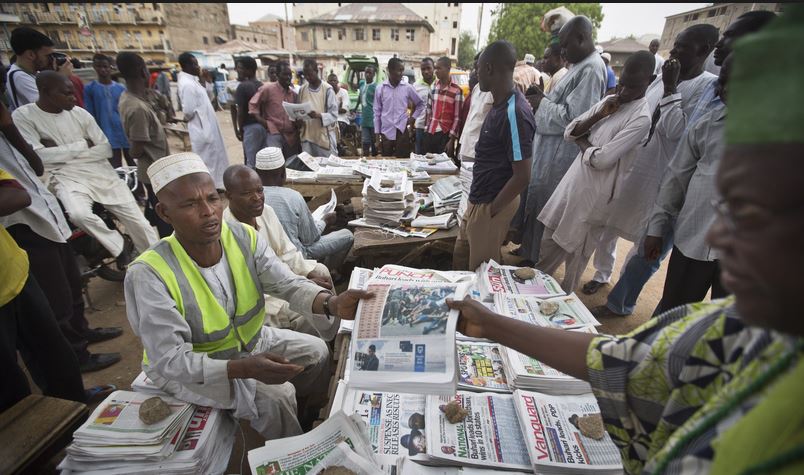| The Guardian reports that about a month after international flight operations resumed in Nigeria and other countries, air traffic is not showing signs of recovery, suggesting global traveller apathy and adverse impact of border restrictions.
In the African region, for instance, African airlines’ traffic sank 90.1 percent in the last one month, though slightly improved over a 94.6 percent decline in July.
Capacity contracted 78.4 percent, and load factor fell 41.0 percentage points to 34.6 percent, which was the lowest among regions.
In a similar vein, the International Air Transport Association (IATA), has downgraded its traffic forecast for 2020 to reflect a weaker-than-expected recovery, as evidenced by a dismal end to the summer travel season in the Northern Hemisphere.
IATA now expects full-year 2020 traffic to be down 66 percent compared to 2019. The previous estimate was for a 63 percent decline.
The newspaper says that US President Donald Trump has tested positive for Covid-19, upending the already tense US election, but was described by his doctor on Friday as feeling “well” and able to perform his duties while quarantining.
Trump, 74, first announced on Twitter that he and First Lady Melania Trump, 50, had tested positive for the virus.
“We will get through this TOGETHER!” he wrote.
The extraordinary setback for Trump had immediate political consequences just 31 days before election day, forcing him to cancel campaign trips and adding new volatility to a contest already steeped in tension.
Trump’s challenger, Democrat Joe Biden, is well ahead in the polls and has made criticism of the Republican’s handling of the coronavirus — and frequent downplaying of the pandemic’s seriousness — a key issue.
ThisDay reports that Fitch Ratings has revised the outlook on Nigeria’s long-term foreign-currency issuer default rating (IDR) to stable, from negative.
It also affirmed the country’s IDR at ‘B’. According to a statement, the revision of the outlook reflects a decrease in the level of uncertainty surrounding the impact of the global pandemic shock on the Nigerian economy.
It pointed out that oil prices have stabilised, while global funding conditions have eased and domestic restrictions on movement have started to be relaxed.
“Nigeria has navigated external liquidity pressures from the shock through partial exchange rate adjustment combined with de facto capital flow management measures and foreign-currency (FC) restrictions, while disbursement of external official loans has supported the level of international reserves,” it said.
The Punch reports that $1.6bn Lagos-Ibadan railway project will be completed in December this year or early January 2021, the Minister of Transportation, Rotimi Amaechi, announced on Thursday.
Amaechi, who disclosed this during a live television programme that also had the Minister of Works and Housing, Babatunde Fashola, in attendance virtually, said he would work with Fashola and the Lagos State Government to move heavy duty trucks away from roads.
During the programme, which was monitored by our correspondent in Abuja, Fashola, while responding to a question, insisted that Nigerian roads would not last without the construction and usage of functional rail lines.
“I am his biggest champion when he (Amaechi) is presenting his request in the cabinet for the rails because I know that without the rail the roads will not last,” Fashola said.
The Sun says that poultry industry, which reportedly lost about N1.5 trillion to the Coronavirus pandemic, said the Central Bank of Nigeria (CBN) took the right step by granting import waivers to four companies.
President of the Poultry Association of Nigeria (PAN), Mr Ibrahim Ezekiel Mam said the import waiver was a follow up to President Muhammadu Buhari’s intervention when he granted the association 5,000 metric tons of maize from the country’s strategic grains reserve.
He said PAN was in total support of the maize importation as part of the measures by the Federal Government to bridge the supply gap forced on local farmers by several factors, including flooding, which has ravaged several farms and the Covid-19 pandemic.
The PAN President further said: “A lot of damage was done to our farms by Covid-19. Day-old chicks, for instance, were lost due to suffocation as the result of multiple checkpoints on the highways and curfews imposed by the state governments,” adding that farmers had to quickly bury their chicks and bury eggs because the demand and supply chain was affected by the nationwide lockdown.
|


